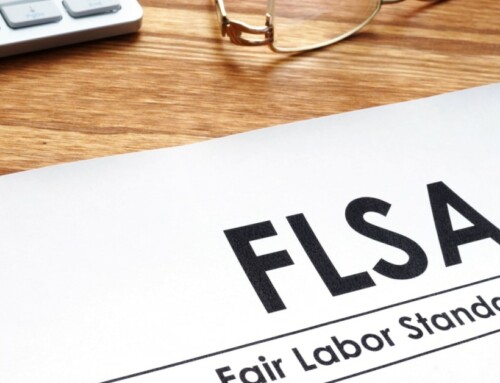Allegations of workplace discrimination can be disruptive for employers. They can also be incredibly costly. Several South Carolina and federal laws protect employees against discrimination in the workplace, and companies that are accused of violating these laws can face significant liability. If publicized, allegations of workplace discrimination can also lead to reputational harm, loss of customers or clients, and a dissatisfied workforce.
7 Steps to Take in Response to Allegations of Discrimination in the Workplace
As a result of these concerns, South Carolina employers that are facing allegations of workplace discrimination must respond to these allegations appropriately. While the specific measures that are necessary will depend on the specific facts and circumstances at hand, there are some general steps that all employers should take in order to mitigate the potential ramifications of a workplace discrimination complaint. These steps include:
1. Take the Employee’s Complaint Seriously
When an employee files a complaint of workplace discrimination, the complaint needs to be taken seriously. This is true regardless of the circumstances involved, and regardless of how credible the employee’s allegations may (or may not) seem. While decisions can be made later as to how to respond to the substance of the employee’s allegations, at this preliminary stage all complaints should be handled in essentially the same manner.
Minimally, this means ensuring that the employee’s report is routed to the appropriate human resources (HR) personnel, and it means letting the employee know that his or her complaint will be investigated. At this stage, the company’s leadership team should also reach out to the company’s employment defense counsel to discuss the company’s response.
2. Have the Employee Submit a Written Statement
If the employee submits a verbal complaint or sends an email to his or her supervisor, the employee should be asked to submit a formal written statement. At a minimum, this written statement should include the employee’s name, the date and location that the alleged discrimination occurred, the other employee or employees involved, and whether there were any witnesses. Obtaining a written statement not only helps to ensure that the company can investigate the employee’s allegations efficiently, but it also provides a possible line of defense in the event that the employee subsequently attempts to change his or her story.
3. Review the Company’s Employment Policies and Procedures
Upon receiving a complaint (formally or informally), it is important to thoroughly review the company’s pertinent employment policies and procedures. Is the alleged conduct prohibited by the company’s policies and procedures? Did the employee who filed the complaint follow the company’s policies and procedures for submitting a report? What response measures has the company established that can be implemented right away?
These are all important questions to answer following the receipt of a workplace discrimination complaint. They should be answered as quickly as possible, and the answers should inform the company’s next steps in responding to the employee’s allegations.
4. Conduct a Thorough Investigation
All allegations of workplace discrimination need to be investigated. The investigation serves two parallel purposes: (i) it allows the company to assess the merits of the employee’s allegations and identify available defenses, and (ii) it demonstrates a good-faith response. The importance of this latter purpose should not be overlooked, as responding in good faith not only mitigates against the risk of facing allegations of complicity but also satisfies the company’s legal obligations under certain statutes.
5. Evaluate All Possible Defenses
After conducting an investigation, the company’s leadership team can then work with its employment defense counsel to evaluate all possible defenses. There are several defenses to discrimination allegations under South Carolina and federal law, although the availability of these defenses is heavily dependent upon the specific facts and circumstances at hand. Some examples of potential defenses to allegations of workplace discrimination include:
- Adverse employment action was taken based upon a bona fide occupational qualification
- Adverse employment action was taken based upon the employee’s job performance
- Adverse employment action was taken based upon the employee’s employment contract
- The decision at issue was made based upon a legally compliant seniority system
- The employee waited too long to notify the company of his or her complaint
6. Determine Next Steps
After conducting an investigation and evaluating potential defenses, the company’s leadership team can then make an informed decision regarding next steps. The company’s next steps will also be dependent, in part, on what steps the complaining employee has taken subsequent to filing his or her complaint (i.e. whether he or she engaged legal counsel and/or filed a complaint with the Equal Employment Opportunity Commission (EEOC) or the South Carolina Human Affairs Commission).
If the company has a clear defense to the employee’s allegations, then resolving the issue may be a relatively simple matter of communicating with the employee and/or his or her attorney. However, if the employee’s allegations are founded (or if the employee firmly believes that his or her allegations are founded), then additional defensive measures may be necessary.
7. Prepare a Vigorous Defense if Necessary
If the employee moves forward with pursuing his or her complaint, the company’s leadership team will need to engage outside counsel to build and execute a strategic defense. When facing substantiated allegations of workplace discrimination, companies must often strike a delicate balance between compassion and vigorous defense. While the company must do what is necessary to protect its assets and preserve its value for shareholders, it must also take into consideration the practical implications of litigating with an employee—particularly in today’s social environment.
Consult with a South Carolina Employment Lawyer at Gignilliat, Savitz & Bettis, LLP
Is your company facing a workplace discrimination complaint? If so, our South Carolina employment lawyers can assist with all aspects of your company’s response—from evaluating the employee’s claim to overseeing the investigation, and from evaluating potential defenses to litigating in court if necessary. To speak with one of our senior employment lawyers in confidence, please call 803-799-9311 or inquire online today.






